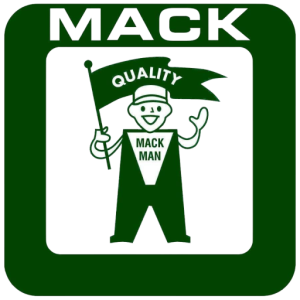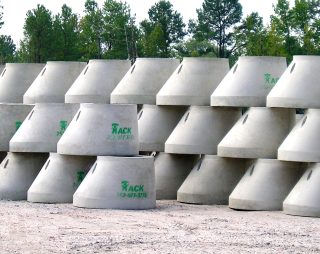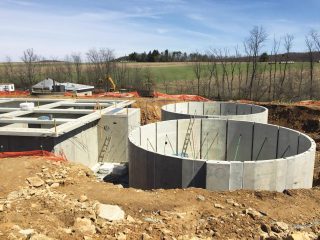Concrete parking lots offer several advantages over asphalt alternatives. Notably, concrete lots boast a longer lifespan, reducing the need for frequent repairs and replacements. Additionally, asphalt lots often incur higher maintenance costs due to semi-annual and repeated upkeep requirements. Concrete’s durability under normal wear and tear, especially from heavy vehicles, further underscores its superiority in demanding applications.

Yet there are several reasons why concrete can prove itself superior to asphalt and supply realistic cost savings, decrease energy required to cool buildings and improve safety.
Lighting
What does lighting have to do with a parking lot surface? Quite a bit, actually. A business owner will need 30% less lighting on concrete than asphalt. The lighting reflects off of the concrete, but it doesn’t reflect off of asphalt. This has implications on the cost of lighting installation, safety and even sales and marketing.
As one example, car dealerships are switching from asphalt to concrete in their car lots. New LED lighting brilliantly lights up the cars at night and the shine is noticeable in a side-by-side comparison between concrete and asphalt. Better lighting can help cut back on theft and crime plus it highlights the inventory to its best advantage.
The cost of a single light pole can be prohibitively expensive. Due to the reflective nature of concrete under LED lighting at night, business owners can install fewer light poles and still have a well-lit area at night, saving on those initial parking lot costs.
Safety
A concrete parking lot that reflects lighting at night, will display images on security cameras much more clearly than an asphalt-covered lot. Business owners at convenience stores, quick-serve restaurants or apartment buildings are making the switch from concrete to asphalt for the improved safety and security it offers to its patrons, employees or residents.
Heating and Cooling
Yes, the choice between asphalt and concrete for your parking lot will likely impact your energy costs. As temperatures soar during summer months, building owners can realize physical cost savings associated with a concrete parking lot when it comes to cooling a building. Asphalt reflects sun back onto a building while concrete absorbs it. Less energy is required to cool buildings next to a concrete lot than one paved with asphalt.
Slip Factor
There is a reason why sidewalks are made of concrete and not asphalt; it’s easier to walk on in inclement weather. Asphalt surfaces are slick to a greater degree than concrete when wet. Concrete surfaces provide better footing.
Freeze / Thaw Cycle
In far northern climates, like upper Wisconsin, Michigan or Minnesota, the ground freezes and stays that way all winter long. However, states such as Ohio and Pennsylvania can set records for freeze/thaw cycles during the course of a winter. A concrete parking lot, once properly set, doesn’t get the “heaving” cracks resulting from these freeze/thaw cycles that can destroy asphalt surfaces and require resealing or worse yet, cutting and patching.
Building owners who look at the long-term objectives can save on maintenance, lighting, energy costs and improve safety simply by making the smart choice for their parking lot surface. Another smart choice is to obtain a precise quotation.
For more information about our high-quality concrete parking lot solutions and how we can assist with your next project, please don’t hesitate to contact us.




